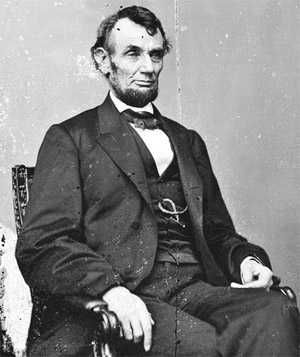The myriad ways of destiny
WITH Joe Biden finally bowing out of the US presidential race, Kamala Harris has declared her candidature for the top post. Of the 49 vice-presidents the US has had till now, 15 went on to become the President. There are many instances when destiny went out of the way to make a winner of the most unlikely candidate.
Mary Todd was a young woman living in Springfield, Illinois, in the 1830s. It is said that one day, she declared to someone proudly, ‘My husband will be the President of the US.’ The boast was not entirely an empty one because one of her suitors was Stephen A Douglas, a brilliant lawyer, orator and politician with a bright future. But as things turned out, Mary married Abraham Lincoln, a lesser-known lawyer. Destiny, however, proved Mary right when Lincoln won the 1860 presidential election in a four-way contest in which Douglas was also a contestant.
Gerald Ford’s rise to presidency was even more curious. In 1973, he was a Congressman looking forward to retirement when Spiro Agnew resigned from vice-presidency. To fill the vacancy, then President Richard Nixon appointed Ford as his VP. Not long afterwards, Nixon resigned as a result of the Watergate scandal. So, within eight months, a Congressman rose to become the US President without contesting any election.
Closer home, Narasimha Rao had packed his bags to leave New Delhi around April 1991 because Rajiv Gandhi had denied him the ticket to contest the General Election. But within two months, the situation changed dramatically in his favour and he became the Prime Minister who served his full term despite the Congress being short of the majority.
In the early 1990s, when I was serving as an IPS officer in Gujarat, we had a DGP who was kind to young officers and was not averse to opening his heart before a junior. One day, he confided in me, ‘God has been very kind. You know there was no chance of my becoming the DGP of the state.’
When I asked him how it had happened, he said he belonged to the first batch of the IPS in Gujarat after the state was carved out of the state of Bombay. There were four officers senior to him in service but younger in age in the state. Seniority used to be sacrosanct in those days. So, it was nearly impossible for him to reach the top. But as luck would have it, of the four officers ahead of him, one quit and took up a job in the private sector, another got his cadre changed and yet another resigned and joined politics.
I asked him what happened to the fourth officer senior to him. The DGP became grim. He said, ‘His case was very unfortunate. A few years into service, he got fed up with the police job. He resigned and tried his luck in business. He succeeded initially but later suffered heavy losses. He went into depression and committed suicide.’









